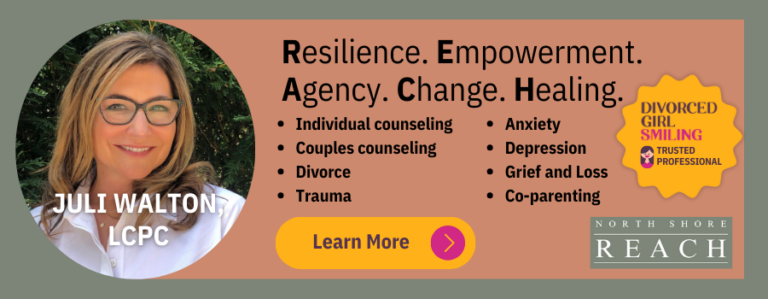In an era where mental health and personal development are paramount, both coaching and therapy have emerged as vital resources for individuals seeking growth, support, and transformation. Despite their overlapping goals of improving well-being, the difference between a life coach and therapist is significant.
Divorce/life coaching and therapy are distinct practices with unique methodologies, objectives, governing ethical bodies, and applications. Understanding these differences can help individuals make informed decisions about which service best suits their needs. Often individuals are confused about how to find what they are looking for to achieve specific goals, and the delineation between these two professions is important to provide the pursuer with their best outcome.
The purpose and goals of seeking divorce/life coaching or therapy may start out the same.
An individual or couple is struggling in their current state and looking for support. These people are looking for change, yet are unsure how to start, and what the future will look like or feel like with these changes. Sometimes they are unwilling to see how they contribute to the problems and distress they are experiencing, and let’s face it, change is hard and scary, and without professional help some people do not have the agency to take the first step.
To start, an individual should understand the differentiated path of becoming a therapist or coach, so they can appreciate what to expect of their provider and their experience.
A significant difference between a life coach and therapist begins at professional training and certifications.
Coaches come from diverse backgrounds and do not require specific coaching licensure, though many seek certification from recognized coaching organizations, such as the International Coach Federation (ICF). Often coaches bring expertise from a prior discipline, such as law, business, health, or education, and have training in these areas as well as credentials that demonstrate their education and expertise in those segments of industry.
Therapists, on the other hand, are required to be licensed, clinical, mental health professionals with extensive training and education. To practice, they must hold advanced degrees (e.g., Master’s, Doctorate) in psychology, counseling, social work, or psychiatry and must meet rigorous licensure requirements, including supervised clinical experience and continuing education.
Their training equips and allows them to diagnose and treat mental health disorders and emotional and behavioral conditions. This training provides a comprehensive understanding of the complexities of behavior, relationships, and mental health, including the interaction of biological, psychological, and social factors. With this full biopsychosocial perspective, underlying issues, and the ability to facilitate change, and growth are more likely to be achieved. Additionally, part of training as a therapist equips them to oversee crises, such as suicidal ideation or severe anxiety attacks, which can be triggered by trauma from experiences such as Divorce.
The primary aim of coaching is to help clients achieve specific personal or professional goals.
Coaches collaborate with clients to identify areas for improvement, set measurable objectives, and develop actionable plans to reach those goals. The focus is future-oriented, emphasizing growth, performance enhancement, and the attainment of specific outcomes. Typical coaching specialties include career development, leadership skills, work-life balance, personal productivity, and Divorce.
Divorce coaches have experience in supporting their clients through the challenges of Divorce, as needs arise and unexpected difficulties begin to play out. A Divorce Coach has experience with both these surprises, as well as the common steps a client should expect during the Divorce process. Additionally, Divorce coaches can be a built-in support system once the Divorce is complete, and as a new life unfolds for their client, and questions arise for how to move forward.
Therapy primarily aims to address emotional distress. Therapists help clients understand and work through past events, mental health conditions, and dysfunctional behaviors. Initially, the goal is often to heal emotional wounds, develop healthier coping mechanisms, and improve daily overall mental health. Therapy can be both short-term, focusing on immediate issues, or long-term, addressing deeper lifelong patterns. Either way, the patient learns skills and tools to achieve a better understanding of how to create a life that has meaning, which is more fulfilling, and productive, as they become better equipped to be in relationships, communicate, and function in their lives.
Coaches typically focus on the present and the future, helping clients leverage their strengths to achieve their aspirations.
The approach is often structured and purposeful, utilizing techniques such as motivational interviewing, positive psychology, and action planning. Coaches encourage self-discovery and personal responsibility, fostering an initiative-taking mindset, particularly as a newly divorced person is feeling overwhelmed and uncertain of the future. This is helpful both during and after the divorce process.
Therapists will uncover patterns of past behaviors to understand the origins of current issues, also providing a space for self-discovery and personal responsibility, fostering an initiative-taking mindset.
Therapists use various techniques based on psychological theories, including the therapeutic process which involves exploring emotions, thoughts, and behaviors to uncover underlying causes of distress and promote healing and emotional resilience. Therapy is also future focused, in that patients develop hope and change for their future, allowing the past to be used as data as an agent of change. In terms of Divorce, therapists provide tools to help their patients build resilience, and confidence, integrating agency into growth for people facing tough conflicts in the process and navigating their new future alone.
In terms of scope of practice, Coaching is appropriate for individuals who are seeking to enhance their personal or professional lives, or going through a divorce, and needing help during the divorce process. Coaches provide support, encouragement, and accountability, but they do not offer medical or psychological treatment. The coaching-client relationship is typically more collaborative and equal, with the coach acting as a facilitator who helps clients tap into their potential and find their own solutions. The dynamic is often less formal, with sessions focused on brainstorming, strategizing, and accountability.
Therapy is suitable for individuals dealing with daily functioning concerns, mental health issues, emotional distress, or psychological disorders. Therapists are trained to provide a safe and confidential environment for clients to explore complex emotions and experiences. They will diagnose mental health conditions and create treatment plans to address the issues patients come in with.
The therapeutic relationship involves a defined boundary between therapist and client, with the therapist taking on a guiding and empathic role. The dynamic is based on trust, confidentiality, and the therapist’s expertise in helping the client navigate and understand underlying psychological issues, while helping to facilitate their awareness and insight empowering growth. Therapists adhere to strict ethical codes that protect clients’ confidentiality, ensure informed consent, and prevent conflicts of interest. Therapists are trained to use evidence-based practices, which are treatments that have been scientifically tested and proven effective.
The difference between a life coach and therapist as it pertains to cost
In terms of cost and coverage for Therapy or Coaching, they differ due to standardization and regulation from the governing bodies of each specialty. Therapy is a covered benefit by most health insurance companies, while Coaching is not covered by insurance as it is a less regulated and standardized profession.
While both life/divorce coaching and therapy offer valuable support for personal development and well-being, they serve different purposes and populations, although each can be a useful resource for anyone going through the Divorce Process. Coaching is ideal for those looking to achieve specific goals and enhance their performance, while therapy is essential for individuals needing to address deeper issues and emotional healing.
Recognizing the distinct functions of each can help individuals choose the right path for their unique needs, and oftentimes, people choose to engage in therapy and coaching. The goal of both coaching and therapy is ensuring clients receive the appropriate support and guidance on their journey to well-being and fulfillment, before, during, and after Divorce.

Juli Walton is a Licensed Clinical Professional Counselor (LCPC) committed to supporting individuals, couples, and families in navigating diverse, complex issues. She has extensive experience working with adolescents and adults who struggle with anxiety, depression, trauma, abuse, family conflicts, and transitional life events related to professional challenges, grief, loss, unexpected stressors, and more.
While her specialties are multi-faceted, she is a trained Divorce Therapist and certified Divorce Mediator, credentials for which she earned from Northwestern University, with significant experience supporting clients through the separation and divorce processes. Her related expertise includes mediation, co-parenting, dysfunctional family patterns, and discernment counseling.
Juli believes that, above all else, the work starts with building a safe and non-judgmental relationship, where clients feel empowered to realize their potential. Through her empathetic nature, she provides a supportive space where clients can grow, change, and heal. Juli is intentional in her goal of helping clients create a life that makes them happy.
Juli sees individuals, couples, and families, and aims to help people dealing with divorce. Her treatment specialities include: separation, divorce, post-divorce, discernment counseling, anxiety, depression, grief and loss, trauma, abuse, family conflict, life transitions, mediation and co-parenting. Learn more and/or schedule a complimentary 15-minute consultation here.





















